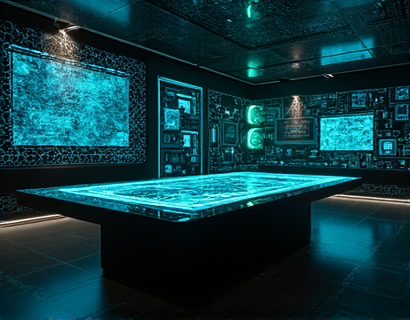Unlocking Ancient Wisdom: A Modern Guide to Historical Insights and Cultural Heritage
In an era where the pace of life often overshadows the richness of our past, there is a profound need to reconnect with the ancient wisdom and cultural heritage that have shaped our world. This guide aims to bridge the gap between historical insights and modern understanding, offering a comprehensive exploration of the timeless teachings and profound knowledge embedded in our shared history. Whether you are a history enthusiast, a cultural explorer, or simply someone seeking to deepen your appreciation of the past, this guide will provide valuable insights and perspectives that resonate with contemporary life.
The journey into ancient wisdom begins with an acknowledgment of the vast and diverse civilizations that have contributed to the tapestry of human culture. From the monumental architecture of the Egyptians to the philosophical musings of the Greeks, each civilization has left an indelible mark on our modern world. This guide will delve into the key aspects of these civilizations, highlighting their achievements, beliefs, and the lessons they offer us today.
Understanding Ancient Civilizations
The ancient Egyptians, for instance, were masters of engineering and astronomy. Their ability to construct the pyramids, precise in their alignment with celestial bodies, showcases a deep understanding of mathematics and the natural world. The hieroglyphs they left behind provide a window into their religious beliefs, social structures, and daily life. These insights not only enrich our knowledge of history but also offer lessons in perseverance, precision, and the importance of recording and preserving knowledge.
Similarly, the Indus Valley Civilization, known for its advanced urban planning and water management systems, provides a model of sustainable living. The cities of Harappa and Mohenjo-Daro were built with sophisticated drainage and irrigation systems, demonstrating an early understanding of public health and environmental sustainability. These ancient practices are increasingly relevant in today's world, where sustainable development and urban planning are critical challenges.
Philosophical and Spiritual Insights
Beyond the tangible achievements, ancient cultures offer profound philosophical and spiritual insights. The Stoics of ancient Greece and Rome, for example, taught the importance of virtue, self-control, and living in accordance with nature. These principles remain relevant today, offering a framework for personal resilience and ethical living in a rapidly changing world. The Bhagavad Gita, a sacred text from ancient India, provides guidance on duty, devotion, and the path to spiritual enlightenment, resonating with seekers across cultures and time.
The mystical traditions of ancient Mesopotamia, with their intricate cosmologies and mythologies, offer a rich tapestry of spiritual thought. These ancient beliefs, though often misunderstood, provide a deeper understanding of the human quest for meaning and connection with the divine. By exploring these texts and traditions, we can gain a broader perspective on the universal aspects of the human experience.
Art and Architecture as Cultural Expression
Art and architecture are powerful mediums through which ancient cultures expressed their values, beliefs, and aesthetics. The Parthenon in Athens, with its perfect proportions and harmonious design, embodies the Greek ideals of beauty and rationality. The intricate carvings and sculptures found in ancient temples and palaces tell stories of gods, heroes, and everyday life, providing a visual narrative of the past. These artistic achievements not only showcase the technical skill of ancient artisans but also offer insights into the cultural and social contexts of their time.
Similarly, the cave paintings of Lascaux in France, dating back over 17,000 years, are a testament to the creative spirit of early humans. These paintings, depicting animals and human figures, suggest a deep connection with the natural world and a complex system of beliefs and rituals. By studying these ancient art forms, we can better understand the cognitive and cultural developments that have shaped human civilization.
The Role of Archaeology and Historical Research
Unlocking the secrets of ancient wisdom and cultural heritage relies heavily on the work of archaeologists and historians. Through meticulous excavation, analysis of artifacts, and interpretation of textual evidence, these scholars piece together the puzzles of the past. Modern technology, such as ground-penetrating radar and DNA analysis, has revolutionized the field, allowing for more accurate and detailed reconstructions of ancient life.
Interdisciplinary approaches, combining archaeology, anthropology, and history, provide a more holistic understanding of ancient cultures. This collaborative effort ensures that the knowledge gained is not only accurate but also contextualized within the broader human narrative. By supporting and engaging with these scholarly endeavors, we contribute to the preservation and dissemination of our collective heritage.
Applying Ancient Wisdom to Modern Life
The true value of exploring ancient wisdom lies in its applicability to contemporary issues. The resilience and adaptability of ancient societies offer lessons in crisis management and social cohesion. For instance, the Roman Empire's ability to expand and maintain a vast territory through effective governance and infrastructure provides insights into modern political and administrative challenges. The emphasis on public works and social welfare in ancient Rome can inform current debates on infrastructure investment and social policy.
Environmental sustainability is another area where ancient practices hold valuable lessons. The agricultural techniques of the Maya, which included crop rotation and terracing, were designed to maintain soil fertility and prevent erosion. These methods are increasingly relevant in today's context of climate change and sustainable agriculture. By studying and adapting these ancient techniques, we can develop more resilient and sustainable practices for the future.
Cultural Heritage and Identity
Cultural heritage is not just a collection of artifacts and traditions; it is a vital part of individual and collective identity. Preserving and celebrating our cultural heritage helps maintain a sense of belonging and continuity. It fosters pride and respect for the contributions of past generations, while also providing a foundation for future generations to build upon.
Efforts to document and protect cultural heritage sites, such as UNESCO's World Heritage List, play a crucial role in this preservation. These initiatives raise awareness and provide the necessary resources to safeguard our shared heritage. Supporting these efforts, whether through education, tourism, or advocacy, is essential for ensuring that future generations can continue to learn from and be inspired by the past.
Conclusion
Unlocking ancient wisdom and cultural heritage is a journey that enriches our understanding of the world and our place within it. By exploring the achievements, beliefs, and practices of past civilizations, we gain valuable insights that can inform and inspire our modern lives. This guide has highlighted the importance of these ancient teachings, from engineering and philosophy to art and environmental sustainability. As we navigate the complexities of the present and prepare for the future, let us draw upon the timeless wisdom of our ancestors to guide us toward a more informed, resilient, and harmonious society.










































